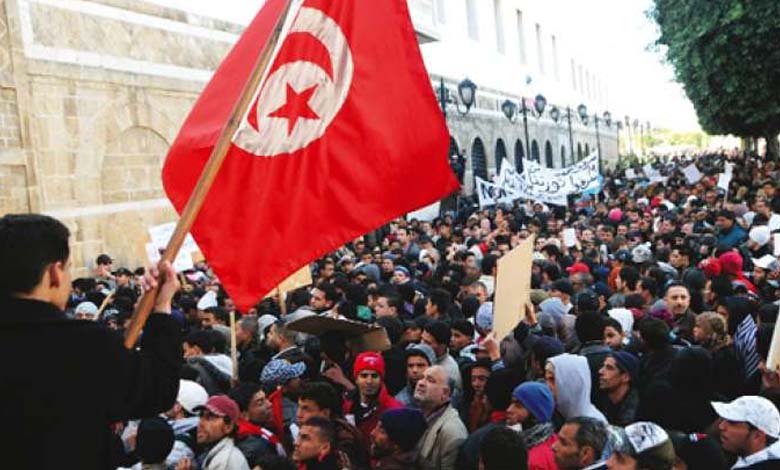The infiltration of elements from the Muslim Brotherhood into the deep state exacerbates Tunisia’s troubles in its war against corruption

After previous accusations were directed at the Ennahda movement by Tunisia, accusing them of orchestrating the bread crisis to fuel Tunisian street protests and turn public opinion against the government, Tunisian President Kais Saied revealed suspicions of corruption within the Tunisian Trade Office.
The Public Prosecutor’s Office at the Tunisian Court of First Instance has initiated investigations into financial corruption suspicions within the ministry’s office. Tunisian Minister of Trade, Kalthoum Ben Rached, pledged to immediately cleanse the office of elements appointed outside legal frameworks.
Over the past decade, the Muslim Brotherhood has been known to appoint its members unlawfully to administrative positions in an apparent attempt to control the state apparatus.
During his Thursday visit to the Tunisian Trade Office, President Kais Saied emphasized the necessity of purging this institution and its distribution channels. He vowed to hold accountable several employees for hindering the conclusion of a coffee purchasing deal by concealing a check worth one million dinars ($0.32 million) under the pretext of a guarantee that would be placed with a private bank.
The Tunisian President stated that “this check was withdrawn by the general secretary of the Trade Office and the central director of financial affairs in this institution, and it was hidden to obstruct the supply of the market with coffee in June 2022.” He clarified that the goal was to “starve the people and escalate the situation,” adding that the distribution of essential goods by the Trade Office lacked transparency and aimed to oppress the Tunisian people in their livelihood.
President Kais Saied added that “any official who does not bear his responsibility will not continue in his duties,” stating that there are infiltrators in the administration aiming to starve the people. He emphasized that the Trade Office should not become a haven for factions and lobbies associated with a group working to oppress Tunisians.
In September of the previous year, an audit process began to review appointments made between January 14, 2011 (the fall of Zine El Abidine Ben Ali’s regime and the rise of the Muslim Brotherhood) and July 25, 2021 (the end of the Brotherhood‘s rule).
Earlier, the Tunisian President called for “the necessity of applying the law to those who fabricate crises every day to fuel economic and social unrest.” Prior to that, Saied dismissed the head of the government institution responsible for managing grain operations and procurement and distribution in the country.
The absence of necessary quantities of essential goods is burdening the Tunisian citizen, as most major areas and stores limit the purchase quantity for some products, such as milk, oil, flour, eggs, coffee, and butter.












